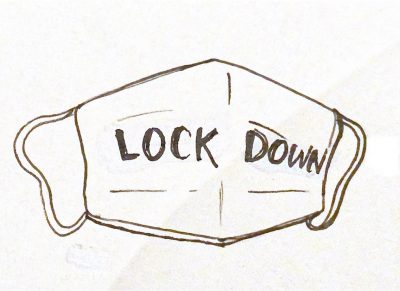A Massachusetts stay-at-home advisory took effect Friday night, and Boston University is encouraging students to follow the Commonwealth’s guidelines of staying home between 10 p.m. and 5 a.m.
As cases continue to rise in Boston, such restrictions are necessary to curb the rise of cases, but their effectiveness is based on the willingness of our community to adhere to those rules.
The mandate itself will not be what stops people from attending large gatherings. It’s likely the shortened operating hours for restaurants and other establishments that will prevent people from going out.
However, the guidelines are largely unenforced, so it’s easy to forget the advisory even exists. People were out on Commonwealth Avenue well past 10 p.m. this weekend and encountered neither warnings nor consequences.

With COVID-19 fatigue setting in, it is all the more difficult to stop the spread of the virus. We saw a spike of 50 cases on campus the week following Halloween. Students couldn’t resist the temptation to party, and it affected the entire BU community.
The pandemic is clearly worsening not only on our campus, but across Massachusetts. People everywhere — though college students undoubtedly play a major role — are failing to adhere to proper COVID-19 restrictions, so another intense lockdown may soon come from state leaders.
With the worst-case scenario — more isolation — looming in the back of our minds, it would be wise to tighten our self-regulations and reassess our choices before we return to the isolation we faced this summer.
We can begin by establishing social bubbles. People are rotating through various small groups of friends, which defeats the purpose of hanging out in those small groups. Seeing different people every day, no matter how few, means exposing oneself to an entirely new social group each time.
It’s important to remember the virus can spread at any maskless dinner date on the BU Beach, regardless of the number of attendees.
Unfortunately, it is more difficult to gather outdoors now that the sun sets in the early afternoon and cold weather is arriving. But there remains no excuse for large indoor gatherings.
College students may largely suffer less severe symptoms from COVID-19 infections, but we bring those cases to other residents in the city. We bring those cases to the staff who tend to our on-campus needs.
While the BU social scene is a contributing factor to the overall spread of COVID-19 in Boston, the outside community’s actions are not mutually exclusive from our own. It’s a regularity to walk off campus and see groups of people wearing their masks improperly, or not at all.
We will see in the coming weeks if the city and BU can successfully subdue this increase in COVID-19 cases, especially as winter arrives. In an email Friday, Dean of Students Kenneth Elmore called upon the student body to “do better.”
It’s true, students can and should do better. Our actions have a ripple effect on the community around us. Not only are we infecting local Bostonians, we are also risking the housing security of some of our peers.
There are students who rely on BU for a place to live or just a safe home environment, and every time someone decides a maskless party is worth tossing out public health guidelines, they put the University that much closer to shutting down campus.
Students must take accountability for their role in spreading the virus, but the University can continue to aid in this process. Ultimately, half of the responsibility for any college outbreak falls on the institution that invited students back in the first place.
The University enacted stricter policies last week, which was a wise decision. However, enforcement should be uniform across all sectors of campus life.
We are required to show a green compliance badge before entering places such as the Fitness and Recreation Center and dining halls. But, professors continue to choose the “honor system” because there has been no such mandate for classroom entry. While a green badge does not ensure a virus-free student, it does provide a sense of security within the facility and should be required everywhere.
Students can hopefully also trust that BU will overhaul its technological successes and failures this semester. After an incredibly disorganized attempt at a virtual Splash, many students were unable to join groups and clubs on campus, which provide the best avenues to get involved and make friends. With this semester’s limited social interaction and reduced on-campus population, students are more lonely than ever, likely making them more inclined to attend parties.
BU needs to begin truly enforcing regulations rather than simply “encouraging” students to follow them. If the University is to make any effective change, it can’t be afraid to put strict mandates in place while innovating safe solutions for socialization.
The student body, meanwhile, can’t be stubborn in evading these rules. Otherwise, our semester may once again be cut short, and the city that hosts us will continue to suffer from our selfishness.
















































































































